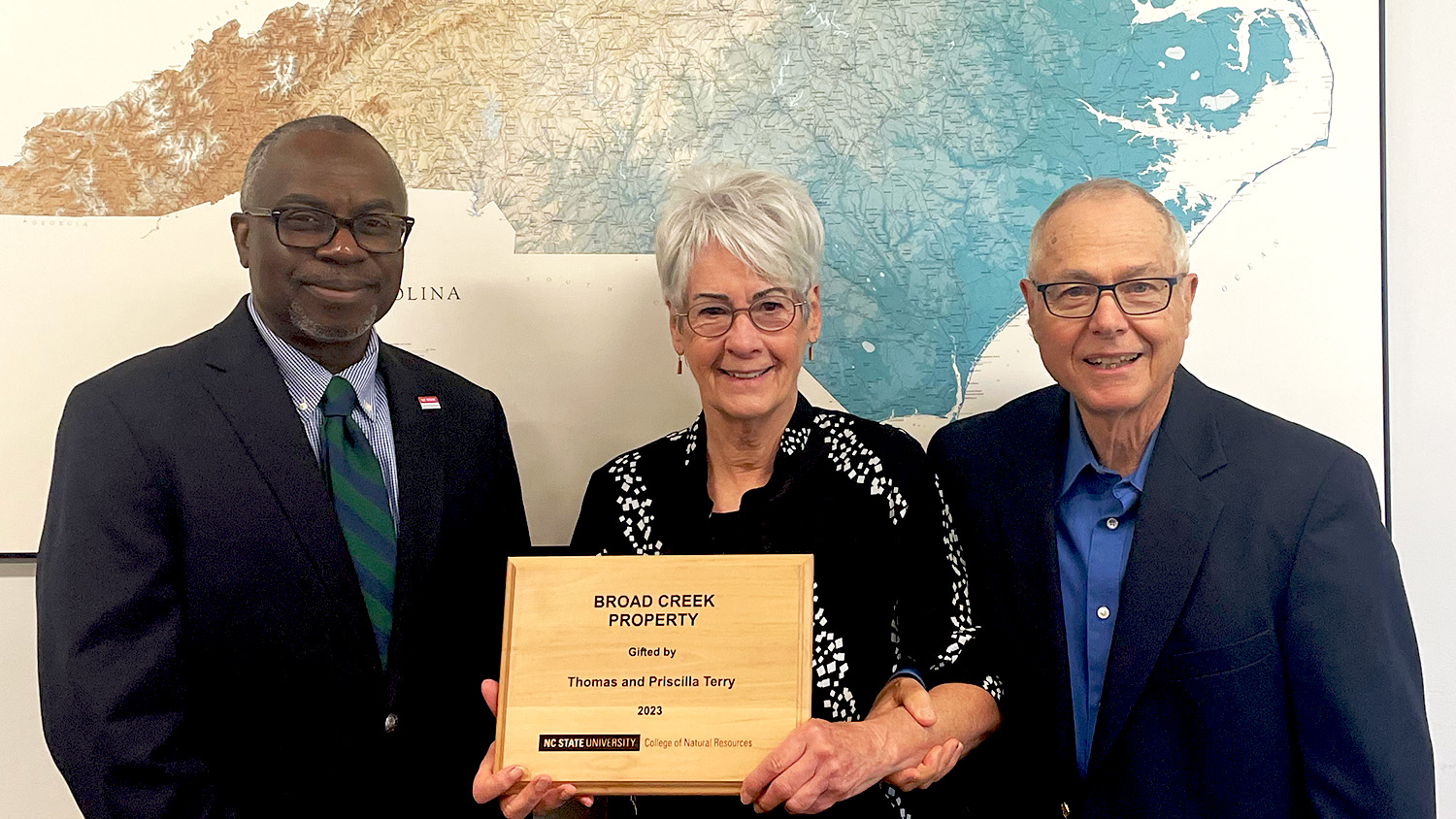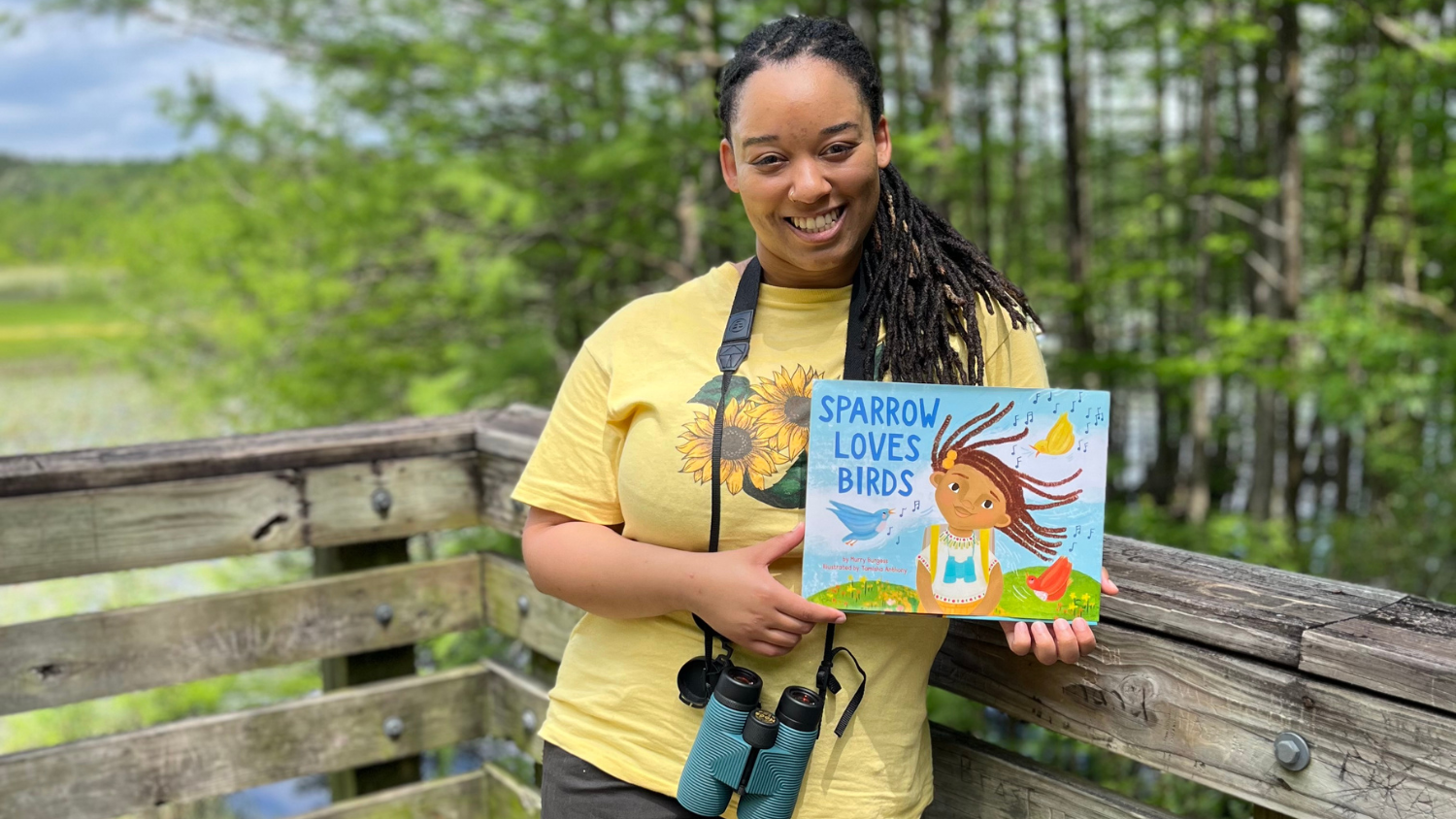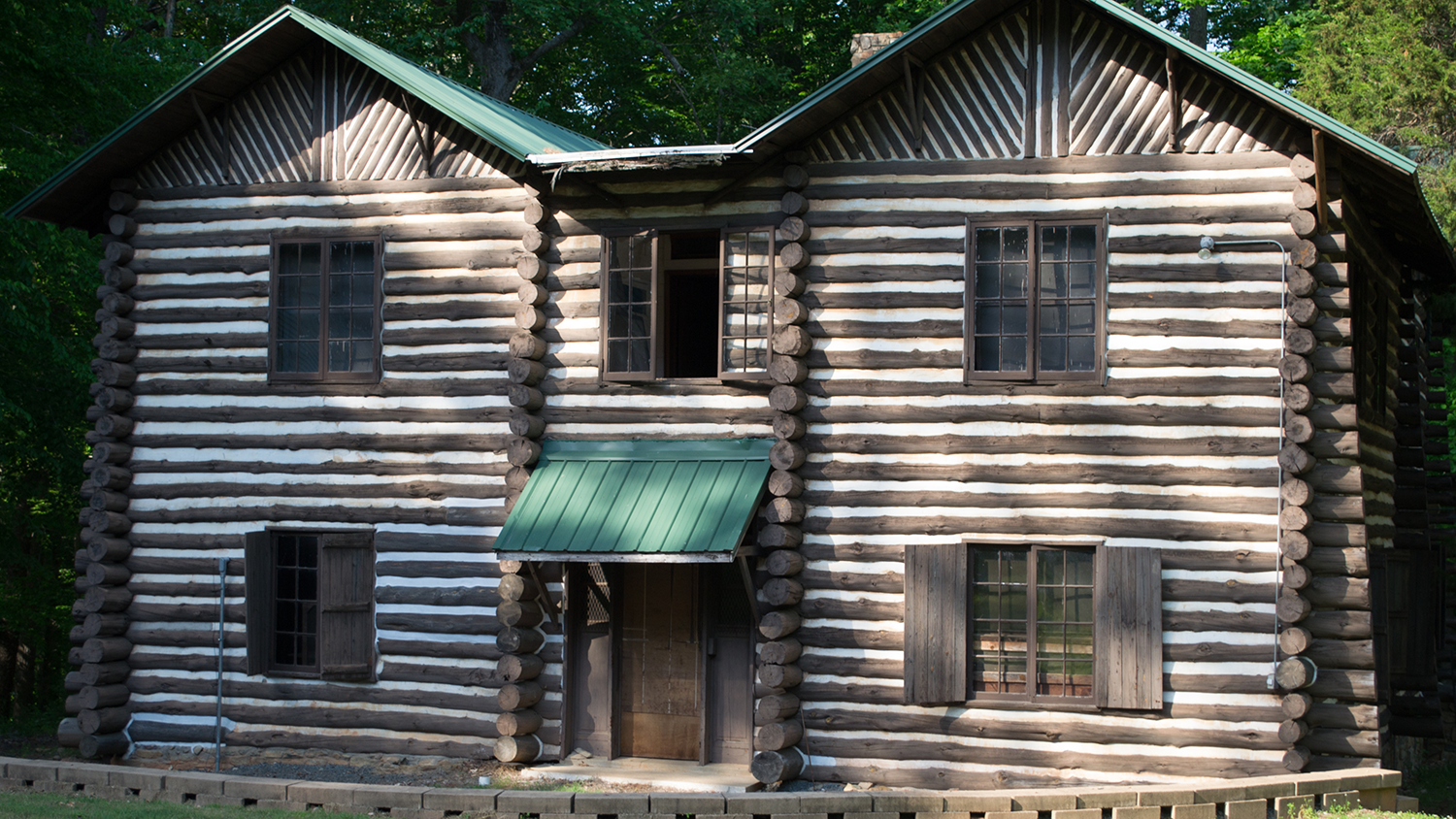NC State Couple Donates Land for Natural Resources Education

When Tom and Priscilla Terry decided to donate 138 acres along Broad Creek to NC State, they gave a gift designed to keep on giving to students interested in learning about and managing our natural resources for generations to come.
The couple bought the property in Craven County years ago with friends, Joe and Annette Hughes and Dr. Norm and Nancy Johnson, thinking the creekside homesites, mixed landscape and proximity to town would make the perfect retirement spot.
Eventually the Terry’s purchased their partner’s shares. Career opportunities took the couple to the state of Washington, where in retirement they decided to share the gifts of the land with students from their alma mater.
The property features everything from marsh land to freshwater swamp with bald cypress and swamp tupelo, to long leaf and loblolly pine, and mixed pine and hardwood stands. The property also has 1.2 miles of frontage on Broad Creek that flows into the Neuse River.
It also comes with protective conservation easements to prevent development that might wreak havoc with the natural resources of the property. There are hunting restrictions as well, protecting native black bears and prohibiting trapping.
The Terrys included a provision that guarantees that if the property is ever sold, the proceeds of that sale will go into an existing scholarship fund in the College of Natural Resources that the Terry’s created a few years ago.
“We wanted this to be a place for research, for land management training, and biodiversity preservation … all the things that go into promoting good forest and land management,” Tom said. “And we wanted to make sure it would be available for students and well managed in the future.”
The couple thought long and hard about the future of the property, and after talking with Jennifer Viets and Sam Cook, they decided that NC State would be the best manager of the property to meet their goals.
The Terrys actually met at NC State as graduate students. Tom earned a Ph.D. from the soil science and forestry program after several years of employment with Weyerhaeuser Company, while Priscilla earned a master’s degree in landscape architecture from the College of Design. Both graduated in 1978.
“My adviser suggested I take soil science, hydrology and forestry classes because we were designing within an urbanizing watershed,” Priscilla said. “I met Tom in a soil taxonomy class. He was sitting in front of me and he passed thin sections of soil back, one after the other, for three hours one evening. We also took a watershed management class together and we struck up a lasting friendship.”
After graduation, Tom returned to Weyerhaeuser Company and they moved to Mississippi, and lastly to Washington. There wasn’t much work in Mississippi at the time for Priscilla, who specialized in large-scale urban landscape planning and resources protection. She therefore began her career in real estate.
In Washington, Priscilla specialized in commercial and investment property. She co-founded a brokerage, re-development, management and leasing company. She has now sold that company and retired. She is proud of the fact that she never converted vacant land to impervious surfaces.
Tom always kept the protection of natural resources and conservation a prime goal throughout his career at Weyerhaeuser Company. That’s the ethic that the Terrys hope students who spend time on the Broad Creek property will take away with them — a true grounding in research and biodiversity, a love of the land, and a deep desire to protect and conserve our resources.
The Terrys now spend time working with a local land trust in Washington, The Nature Conservancy, other natural resource conservation organizations, and local nonprofit civic organizations. They share the belief that “we must inspire current and future generations to develop strong ties to the land and a natural resource conservation ethic. Our standard of living, quality of life, and personal well-being and health depend on it.”
This article was written by Beth Grace for the College of Natural Resources.
- Categories:


